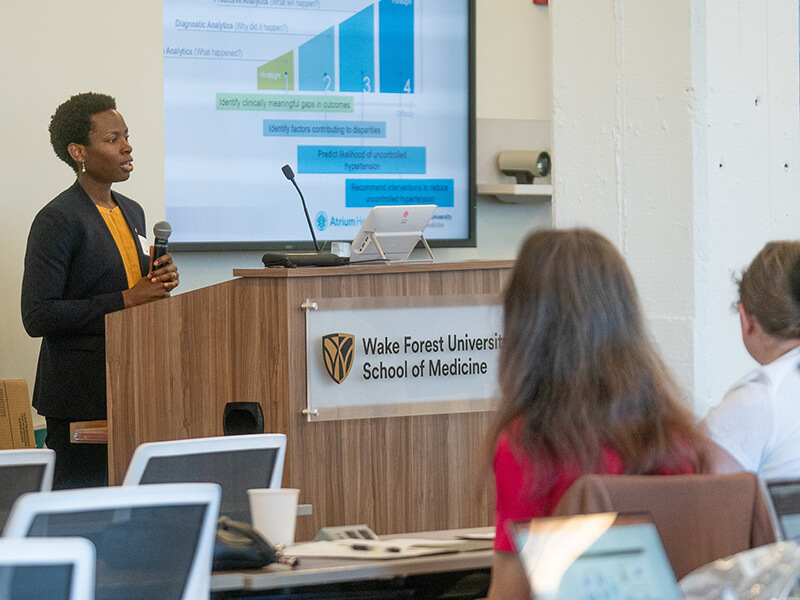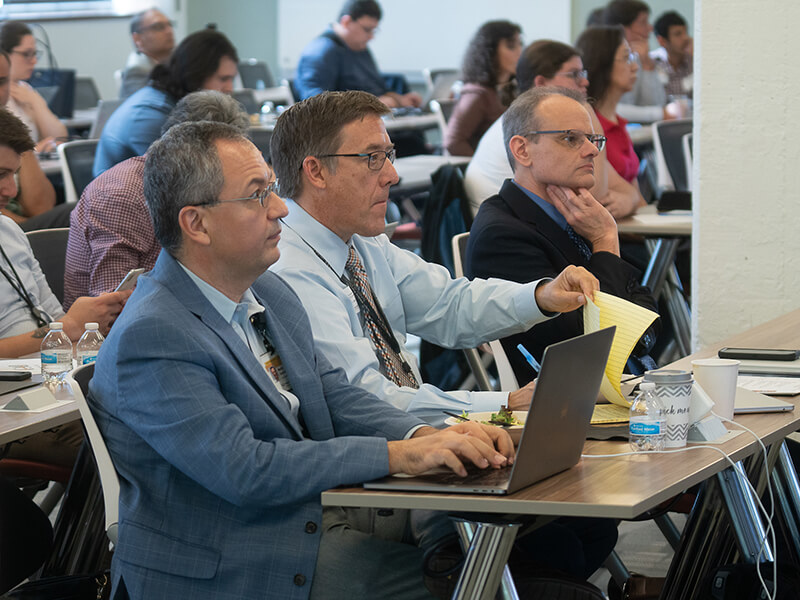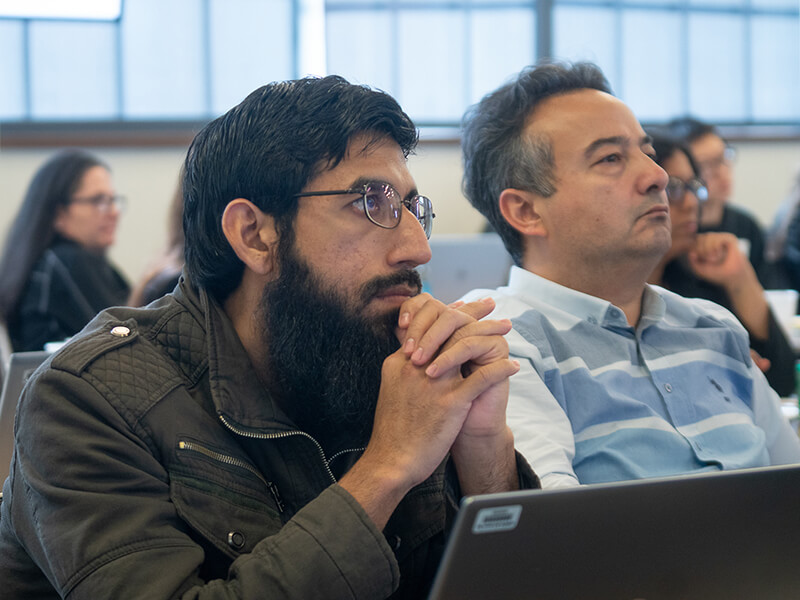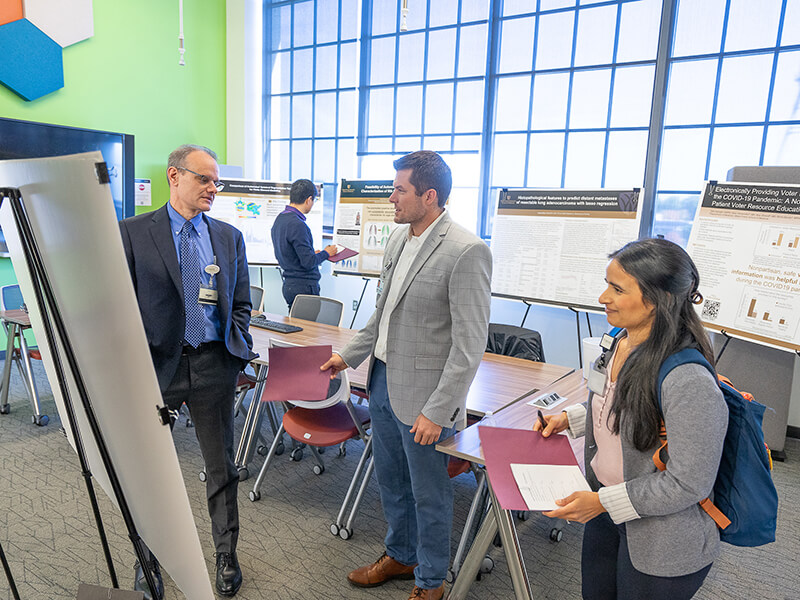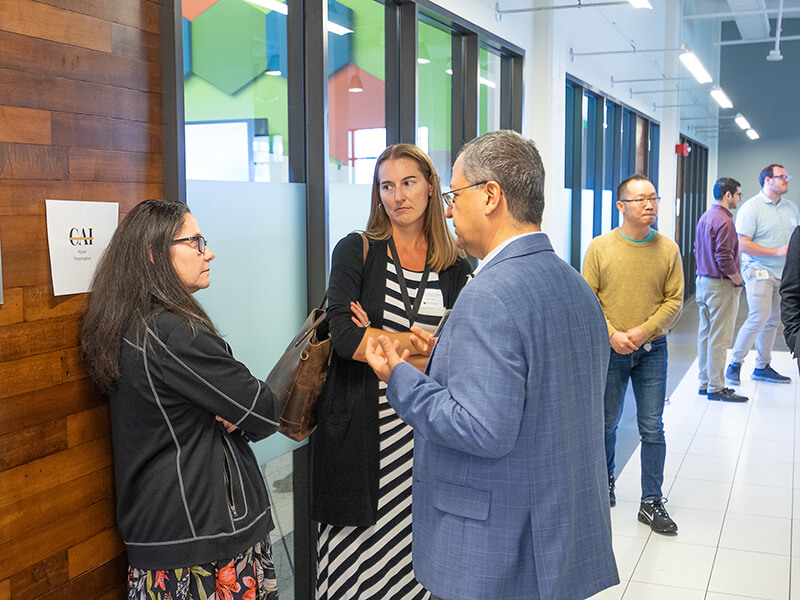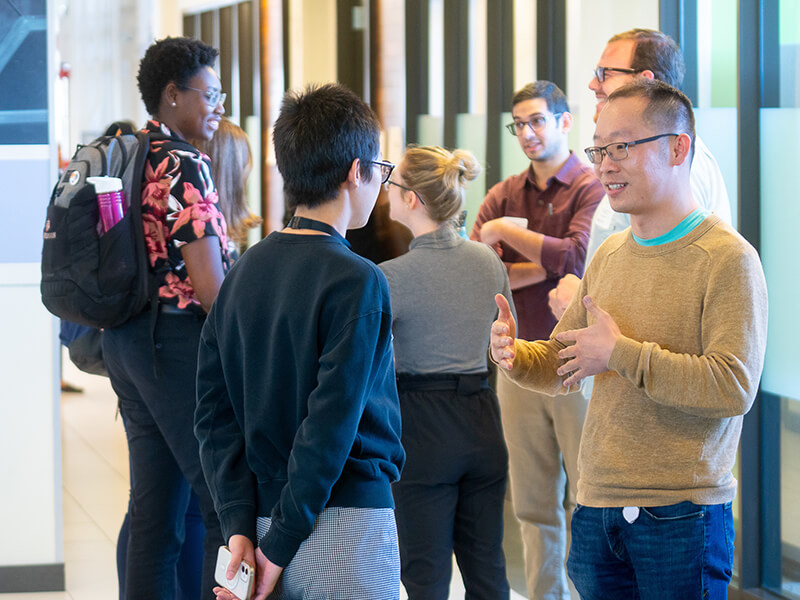Artificial intelligence (AI) – the simulation of human intelligence by machines – is in the technological, political and media spotlights and, depending on who you listen to, could either be the greatest invention since sliced bread or the demise of civilization.
As director of the Center for Artificial Intelligence Research, Metin N. Gurcan, PhD, Professor, General Internal Medicine, spends a lot of time sifting through the hype and hyperbole to find the best ways AI can improve health care. AI research, he says, has been going on for a long time; however, advances in computational power combined with the vast amounts of data available from the internet have helped create very powerful algorithms that are now pretty good at mimicking human intelligence.
“When I start my day, I say ‘I'm here for our patients; what can I do today that will make a difference for our patients?’” Gurcan says. “With the interest in artificial intelligence comes a lot of questions. And people have a lot of hope and expectation for artificial intelligence, but at the same time, they have a lot of concerns.”
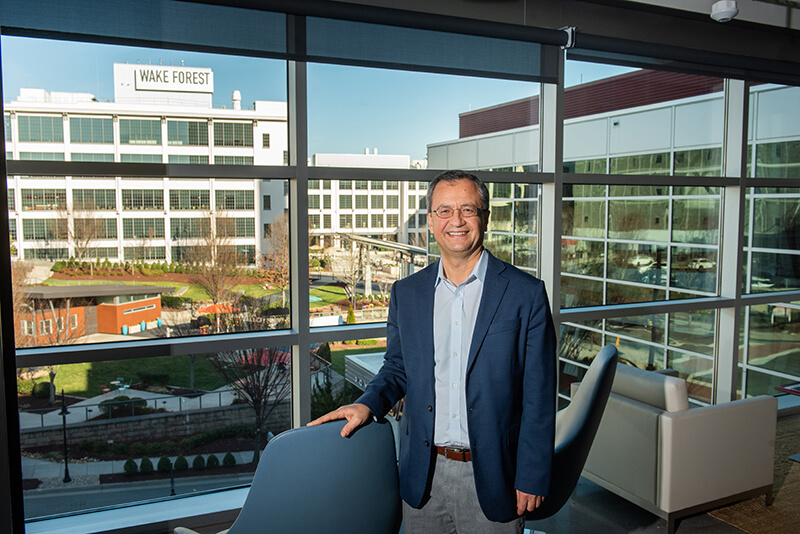
Advice and Guidance
The Center for Artificial Intelligence Research officially started in October 2023, and Gurcan sees it as an adviser to Wake Forest University School of Medicine and the Advocate Health organization. He likens the current state of AI to the internet landscape of the late 1990s and thinks how we use it will evolve over time in a similar manner.
“We will realize that some applications of AI are truly beneficial while others are merely adequate,” he says. “It is important to distinguish between the two and focus on maximizing the benefits of AI. As we develop new technologies, educate our researchers and trainees and conduct innovative research, our center can serve as a trusted partner, providing guidance on the correct path forward."
This guidance will be vital, both for keeping up with the rapid evolution of AI and for keeping track of all the ways it touches health systems processes and patient lives. When someone thinks of AI in health care, they typically imagine a provider using it for charting or reading diagnostic images. But the scope is much, much wider.
AI can help schedule appointments, answer questions in a website chat, check symptoms, check for prescription interactions in the doctor’s office and the pharmacy, help process insurance claims, set reminders for follow-up … the list goes on and on. And that’s not even factoring in the reams of data potentially collected by wearable devices from smart watches to continuous glucose monitors to heart monitors.
In all these cases, Gurcan says, people want to know how to interact with AI, make the best use of it, incorporate it into current workflows and make people’s jobs better. To answer those questions, he wants the center to be a resource that helps people figure out the right experts to connect with.









